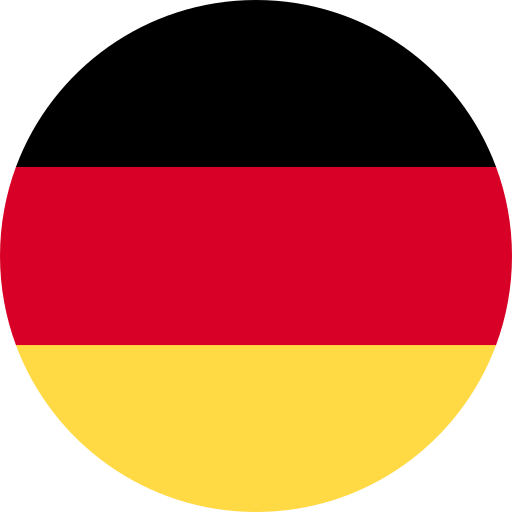What does a special question mean in English?
Oleksandra Kulish
Book expert
A special (or open) question is a type of question that cannot be answered with a simple “yes” or “no.” It requires a complete, meaningful answer. In this article, we will look at how to correctly ask questions about the subject, object, circumstances, and modifiers in English.
What exactly are special questions in English?
A special question is a type of interrogative sentence that requires a detailed answer. Such questions begin with question words (what, who, where, when, why, which, whose, whom, how) or with special constructions (what kind, how many, how much, etc.).
Special questions help you learn more about an action, object, time, place, reason, or other circumstances. They are constructed according to a specific word order characteristic of the English language.
In general, the structure of a special question in English is as follows: question word + auxiliary verb + subject + predicate + rest of the sentence + ?
If the question refers to the subject: question word + predicate + rest of the sentence + ?

Examples:
|
Original |
Possible replacement |
Comment |
|
What do you want? |
What are you looking for? |
Formally different, but similar in meaning |
|
Where are they going? |
Where are they heading? |
Synonymous expression |
|
When did she call you? |
What time did she call you? |
Replacing “when” with clarification |
|
Who made this decision? |
Who decided this? |
In simple terms |
|
What happened yesterday? |
What took place yesterday? |
A more formal wording |
When and how to ask special questions
Special questions in English are used when you need to find out more about a person, subject, or phenomenon. To form such a question, use question words:
- what?
- who?
- where?
- when?
- why?
- which?
- whose?
- whom?
- how?
In addition to individual words, English has question structures that clarify questions:
- what kind?
- what time?
- how many?
- how much?
- how long?
- how often?
- how far?
The structure of a special question is similar to that of a general question (i.e., a Yes/No question), but an interrogative word or construction is placed before the auxiliary verb.
Structure:
|
Interrogative word/construction |
Auxiliary verb |
Subject | Predicate |
Other parts of speech |
Translation |
|
What |
do |
they |
do |
together? |
What are they doing together? |
|
How often |
does |
he |
visit |
his friends in Italy? |
How often does he visit his friends in Italy? |
If the main verb in a special question is to be or a modal verb (except have to), then an auxiliary verb is not used.
Negative form of special questions
To turn a regular special question into a negative one, you need to add the particle not after the auxiliary verb. The word order remains the same, only the form of the question changes.
Why did he not come to class?
However, in everyday communication, native speakers of English — both British and American — rarely use full forms such as did not, does not, are not. Instead, they usually use abbreviations: didn’t, doesn’t, aren’t, etc.
- Why didn’t he come to class?
- Where didn’t you go during your vacation?
This structure allows you to ask precise questions with an element of negation.
Questions to the complement
A complement is a secondary part of a sentence that provides additional information. Questions to the complement usually begin with question words such as who (who?), whom (whom?), what (what?). Because of this, they are easy to confuse with questions to the subject, since the latter can also begin with the same words.
However, the main difference is that questions to the object retain the classic word order: question word + auxiliary verb + subject + predicate + rest of the sentence.
Whom did she invite to the party?
What are they laughing at?
Who did you write this letter to?
In special questions to the complement, the preposition is often placed at the end of the sentence. This is normal for English and is not considered a mistake. Conversely, in general questions (those that require a “yes” or “no” answer), the preposition remains in its place before the complement.
Questions to the circumstance
A circumstance is a secondary part of a sentence that indicates the time, place, manner of action, reason, or condition for the action. Questions about circumstances usually begin with question words such as when? where? where from? what for? why?
Where do you usually spend your weekends?
How does he manage to work and study at the same time?
What are they building this for?
Questions about circumstances help to find out where, when, how, why, or for what purpose something is happening. They are easy to recognize by their question words, and special attention should be paid to prepositions at the end of constructions such as what for and where from.
Questions about the definition
A definition is a secondary part of a sentence that indicates a feature of an object, i.e., describes its properties: whose? which? how many? Questions about the predicate are constructed according to a standard pattern and begin with the following question words: what? (which?), which of? (which one?), whose? (whose?), how many? (how many?), how much? (how much?).
What kind of music do you usually listen to?
Which of these paintings is yours?
Whose keys are on the kitchen table?
Exception — questions about the subject: they do not contain an auxiliary verb, and the predicate immediately follows the question word: Who made this cake?
How special questions are formed in English

There are three main ways to form special questions in English: with an auxiliary verb, with the verb “to be,” and with a modal verb. Let's look at how each of them is formed.
With an auxiliary verb
Auxiliary verbs include do, did, does, will, and others. A special question with an auxiliary verb is formed according to the following pattern:
Question word + auxiliary verb + subject + main verb (action) + rest of the sentence.
When will you show your dance moves at the office party?
Without an auxiliary verb
In some cases, an auxiliary verb is not needed. This applies to situations where the question refers to the subject. That is, if the interrogative words who or what are themselves the subject, then neither auxiliary nor modal verbs are used.
Who broke the office coffee machine?
The pattern is as follows:
Interrogative word + predicate + rest of the sentence.
With a modal verb
Modal verbs include should, would, can, may, etc. The question pattern is as follows:
Interrogative word + modal verb + subject + main verb (action) + rest of the sentence/
What can I cook for dinner if we have only eggs and cheese?
Negation
To make a special question negative, use the particle not. It usually comes after the auxiliary or modal verb, forming contractions such as don’t, can’t, won’t.
Which task don’t you want to do today?
Prepositions in special questions
In most cases, the preposition in a special question is placed at the end of the sentence. For example:
Whom did you give the report to?
If you want to make your speech more formal, you can put the preposition at the beginning:
To whom did you give the report?
Now you know more about special questions in English. The most important thing when learning them is practice. Regularly do various exercises on forming all of the types of questions listed above, learn how to answer them, and very soon you will be able to form them automatically!
Other news

1099
0

Oleksandra Kulish
Book expert
05 September 2025







